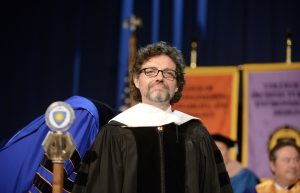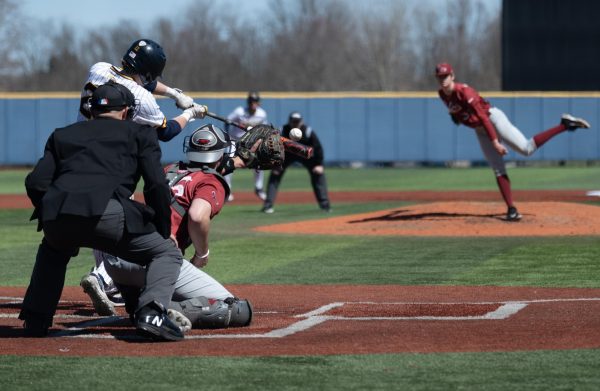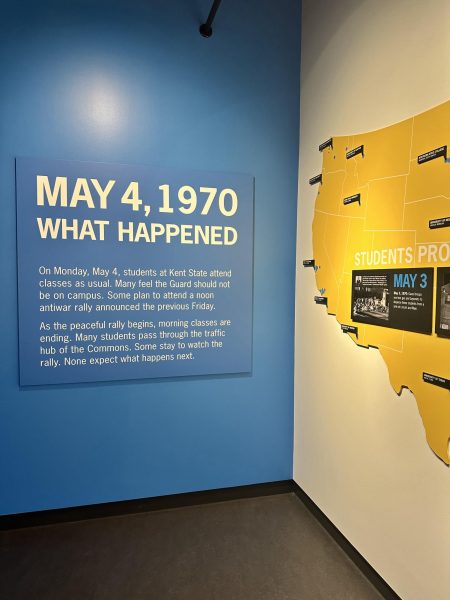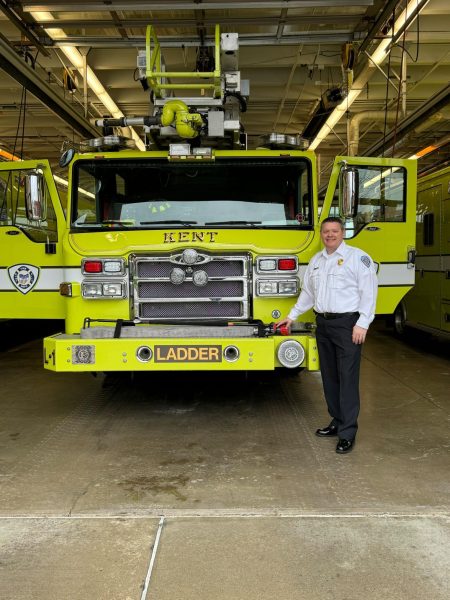Utility bills add up for students living off campus
December 5, 2007
In the residence halls, heating is never an issue. Students can just crank up the heater and not worry about it. But for students off campus, electric and gas bills can really add up.
Wayne Demmer, from Kent Hardware and Building Center, said there are ways to keep houses and apartments warm in the winter without stretching the small budget of college students.
The biggest thing is to try to stop cold air from coming in and the warm air, once paid for, from going out, Demmer said.
To keep cold air out, one could use a window insulation kit, which includes double-sided tape and plastic. The plastic goes over windows and is fastened with tape. Taking a hair-dryer to the plastic will pull the plastic tight so there are no wrinkles. The insulation kits can run from $2 to $5 depending on the size of the window.
Demmer said another tip to keep cold air from coming in through the windows is to use caulk, a material used in sealing windows among other things .
To keep cold air from sneaking in under doors, Demmer said to make sure doors have a weather strip or a door sweep. Another cheaper alternative is to take a damp towel and roll it up and place it against the bottom of the door to block the air from coming in.
The furnace can make or break efficient heating. Demmer said to check and make sure a furnace’s filter is clean.
If the filter is clogged, the furnace has to work harder to keep the air warm, Demmer said.
The price for filters ranges from $1 to $10. More expensive filters will help with allergies by keeping smaller particles out of the air.
Another way to make sure the furnace isn’t overworking is to check receptacles, such as light sockets, to make sure cold air isn’t coming in. If it is, Demmer said that one can take the cover off and put foam insulation in, then replace the cover. This will keep the air from coming in and the furnace from having to work harder to replace that warm air.
For off-campus students, being able to set the thermostat can be daunting. In the winter, students want to keep warm while still being able to afford next month’s bill. Demmer said that the government recommends keeping the thermostat at 68 degrees.
“It obviously matters on personal taste, but 68 degrees is recommended,” Demmer said.
Bob Czuprynski, vice president of operations at American Heating Ventilation and Air Conditioning, said he suggests programming the thermostat.
“One thing to do is program the thermostat to have it at a lower temperature, especially when you’re not there or sleeping,” Czuprynski said. “You don’t want to heat the place if you don’t need to.”
For bigger apartments and houses, space heaters may be more cost effective.
“If you have a bigger house and don’t use some of the rooms, you can lower your thermostat and use a portable heater to heat a room,” Demmer said. “You don’t want to pay to heat the rooms you’re not using.”
Another tip to lower electric bills is to get new light bulbs. Compact florescent light bulbs cost more initially but save energy and, in turn, money.
Czuprynski said energy efficiency is not very difficult.
“You can just keep the thermostat down a couple more degrees and wear a sweater,” Czuprynski said.” A lot of energy efficiency is just common sense.”
Contact public affairs reporter Emily Andrews at [email protected].
























